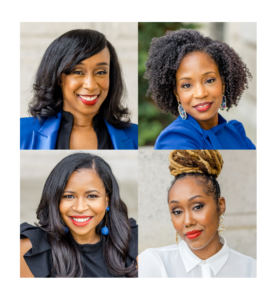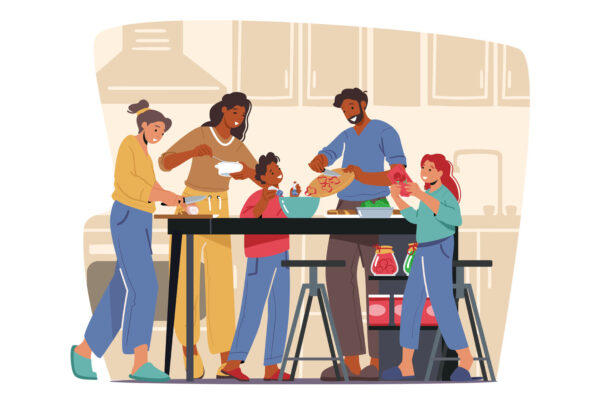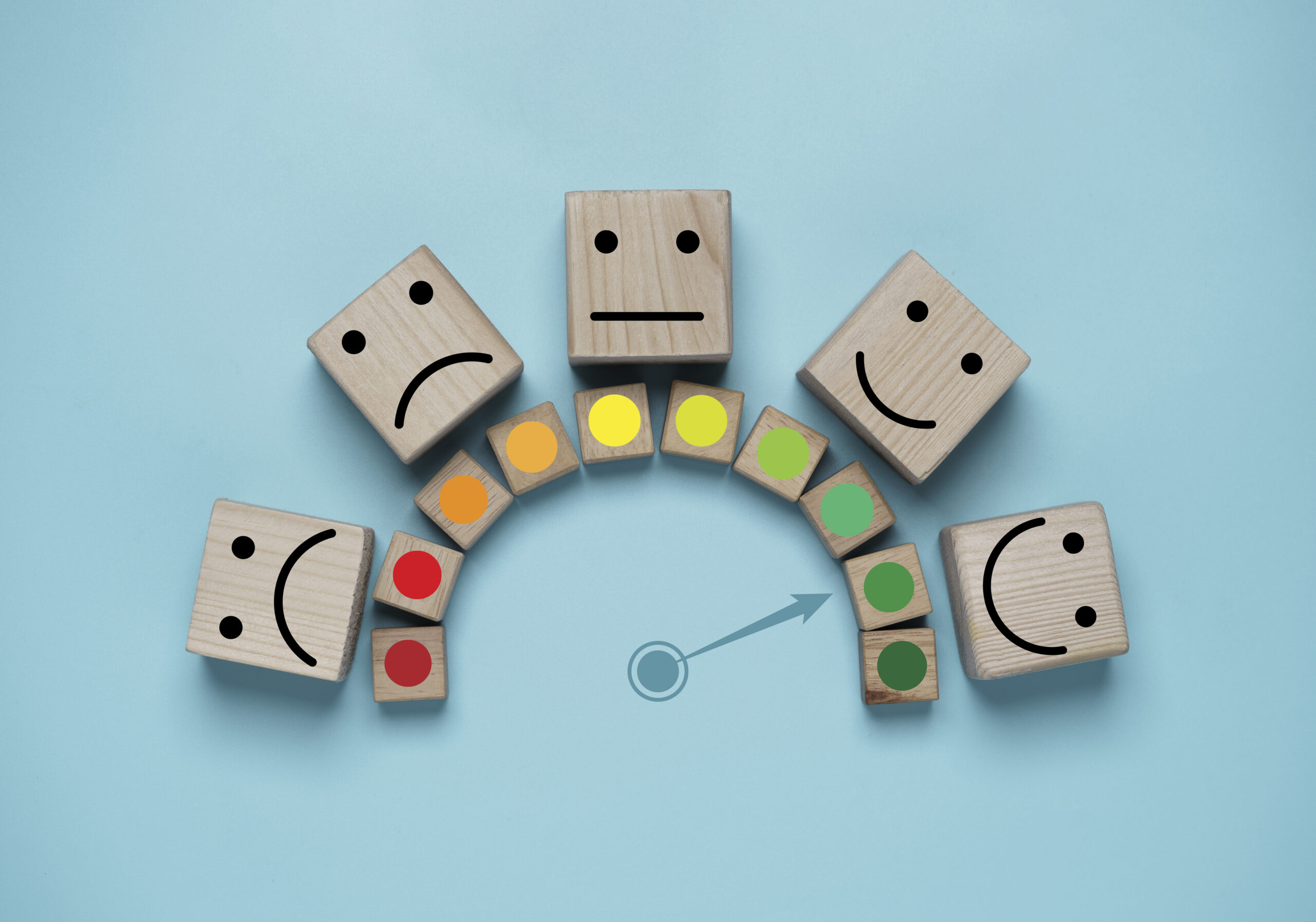Several years ago, while providing mental health services on a military base, I noticed that Black women often sought treatment for a mental health concern or stressor, but expressed reservations about therapy, even while in the therapy room. In addition, many clients struggled to acknowledge that what they were experiencing (e.g., symptoms of depression or trauma) was actually related to a mental health disorder. Many clients felt a discrepancy between what they were feeling (e.g., overwhelmed, hopeless) with what they were still able to accomplish in their day-to-day life (e.g., success in career, parenting responsibilities). Clients often expressed, “I can’t be depressed” because they were still “functioning” in many different capacities. However, they were also reporting not feeling like themselves, low motivation, irritability, and feeling depleted at the end of each day.
I attempted to describe to them how depression often presents differently in Black women, and I wanted to provide psychoeducational resources that explained symptoms of depression among Black people, to help create a greater understanding. But at the time, it was nearly impossible to find or resources that met this need and were also accessible and relatable to the everyday person. Finally, I found two articles published by Ebony Magazine to help explain depression, the superwoman syndrome, and the impact of the Strong Black Woman phenomenon on Black women’s mental health and used them to start conversations around mental health in Black women.
Using these articles served as a launching pad for many women to really understand what they were experiencing; I saw women feeling seen and heard in the therapy room, many for the first time. I realized then that my purpose was to help more Black people to understand mental health, by creating a platform to provide culturally inclusive mental health resources and programming to help Black people feel empowered to seek the mental health treatment they need and deserve.
The lack of Black mental health resources and the lack of diverse representation in the mental health field inspired me and my colleagues who shared the same commitment to Black mental health — including Dr. Danielle Busby, Dr. Jessica Henry, and Dr. Dana Cunningham. Together we committed to shift the narrative of mental health in the Black community.
Black Mental Wellness, Corp.
The unique mental health needs of the Black community have historically been overlooked in the field, and many of the therapeutic approaches to therapy, the systems and researchers that informed the field, and the providers who conduct therapy and assessments were based on White populations. The false narrative in the mental health field that sustained for decades was that Black people do not want to go to therapy.
The truth is that the mental health field has a history of failing Black people – overlooking their needs, misdiagnosing mental health disorders, demonstrating racial and implicit biases, and undervaluing cultural strengths in the Black community. This has left many people distrusting a system that was not built to be inclusive of their experiences. As a team, we knew that we had the capacity to change the field. We know that Black people respond best to therapy when they are matched with a provider who looks like them, is culturally sensitive and offers an environment where it feels safe.
At Black Mental Wellness, Corp., we are passionate about closing the disproportionate gaps that exist in mental health and wellness services, research, therapeutic approaches, and knowledge of mental health in the Black community through a multi-tiered approach, including:
- Developing culturally sensitive educational resources and programs and increasing access to quality mental health services;
- Diversifying the field of mental health by providing training opportunities to students with an emphasis on HBCUs and increased representation of mental health and wellness providers currently addressing Black mental health; and
- Facilitating programs, workshops, trainings, and consultation services through a cultural lens.
Culturally Inclusive Resources
Black Mental Wellness, Corp provides free information and resources about mental health and behavioral health topics from a Black perspective on our website www.BlackMentalWellness.com. As an organization we also provide training and workshops to stakeholders ranging from school districts, mental health providers, and major corporations both within and outside of the mental health field. For example, we have consulted with numerous organizations to help them improve their delivery of mental health care, increase understanding and utilization of culturally responsive mental health services, improve mental health access to under-represented and marginalized populations, and create more inclusive work environments. In addition, we often speak at local and national conferences and events, all with the goal of normalizing conversations around mental health and offering targeted recommendations for improving Black mental health.
Culturally Inclusive Programming
We utilize our platforms to host virtual events to provide conversations and learning opportunities that are responsive to the needs identified by the Black community. For example:
- We have hosted programs focused on mental health and wellness among Black men; suicide; self-care and wellness; mental health and the Black church; and children’s mental health.
- We also host an annual mental health conference focused on advancing culturally responsive and equitable care in the Black community. The 2023 Conference, Cultivate. Restore. Empower: Reclaiming Joy in the Black Community, will explore the range of ways that Black mental health can be addressed systemically and highlight cultural approaches to healing.
- In addition, we consistently produce content for our website and social media channels which provide practical information about mental health for the Black community.
- Lastly, we authored Healing Racial Stress Workbook for Black Teens: Skills to Help You Manage Emotions, Resist Racism, and Feel Empowered (Release date August 1, 2023), which will provide Black adolescents with the tools they need to address racism and microaggressions.
Our growth and success as an organization is also due to partnerships and feedback from the community which ensures that our services and resources are aligned with community needs. This requires utilizing innovative strategies to connect to people by reaching them where they are (e.g., churches, barbershops, schools), increasing accessibility, and addressing mental health across the developmental life span. To date, we have partnered with organizations and donors who have funded free group therapy and free individual talk therapy services for our constituents. These partnerships have supported our organization in improving programmatic equity that allows us to connect Black communities to free, high-quality services that many would not normally receive.
Increasing Diversity in Mental Health
Currently only 4.1% of therapists are Black/African American. We are committed to diversifying the field of mental health and specifically target students and mentors nationwide to participate in our National Training program. The work that we are doing is designed to help decrease this disparity in providers. Trainees in our program receive individual guidance from a mentor, professional development, monthly didactics, early career guidance, and leadership and skill development, to help prepare for and excel in college, graduate school, and early career jobs. In addition, we provide specialized internship opportunities and an Ambassador Program. Our national team of ambassadors help guide the development of resources and programs that are relevant for the Black community. Since our first cohort of trainees in 2019, we have worked with 87 students, 47 mentors who are mental health experts, 10 interns, have an established MOU with an HBCU to streamline training experiences and increase access to opportunities, and 21 ambassadors, who have all continued work in mental health-related education and jobs including acceptances in graduate programs and early career employment.
We also offer opportunities for mental and behavioral health professionals, health and wellness advocates and community organizations to advertise for free on our platforms (website and social media) as we highlight the resources and/or services they provide. This helps to highlight the diversity of mental health and behavioral health professionals and the various ways that mental health and wellness can be addressed.
We are dedicated to building a movement within the Black community, such that conversations about mental health are normalized, mental health is celebrated, and Black joy is elevated. By carrying out the mission and vision of Black Mental Wellness we are increasing knowledge, decreasing stigma, and shifting the narrative to highlight the importance of mental health and wellness within the Black community.
——————————————–
 Black Mental Wellness, Corp., Founders
Black Mental Wellness, Corp., Founders
The four licensed clinical psychologists who founded Black Mental Wellness, Corp. (left to right): Dr. Nicole Cammack, President and CEO; Dr. Dana Cunningham, Vice President of Community Outreach and Engagement; Dr. Danielle Busby, Vice President of Professional Relations and Liaison; and Dr. Jessica Henry, Vice President of Program Development and Evaluation.
More information about the founders and programs offered by the organization can be found at its website, www.BlackMentalWellness.com.






